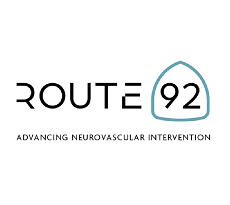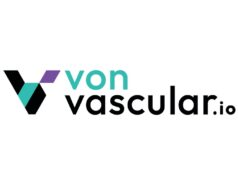 Route 92 Medical has today announced the completion of enrolment in the 250-patient SUMMIT MAX clinical trial evaluating the safety and effectiveness of its HiPoint 88 and HiPoint 70 reperfusion catheters as part of the Monopoint reperfusion system.
Route 92 Medical has today announced the completion of enrolment in the 250-patient SUMMIT MAX clinical trial evaluating the safety and effectiveness of its HiPoint 88 and HiPoint 70 reperfusion catheters as part of the Monopoint reperfusion system.
Route 92 claims to have become the first company to complete enrolment in a trial studying the safety and efficacy of a ‘super-bore’ aspiration catheter with at least a 0.088-inch inner diameter for the treatment of a large vessel occlusion—the cause of many acute ischaemic strokes.
“SUMMIT MAX is a pivotal randomised controlled trial [RCT] investigating the safety and efficacy of a 0.088-inch aspiration catheter, a technology advancement the clinical community has believed important to improve stroke care for many years,” said Thanh N Nguyen (Boston University School of Medicine, Boston, USA), co-national principal investigator for the trial along with Ajit Puri (University of Massachusetts Medical Center, Worcester, USA) and Guilherme Dabus (Baptist Health South Florida, Miami, USA). “In a field where time is brain, systems of devices that could improve the quality of reperfusion, reduce procedure times and simplify the procedure are needed. SUMMIT MAX is the first FDA [Food and Drug Administration]-approved aspiration thrombectomy trial which is randomised. RCTs provide the best clinical science and the SUMMIT MAX trial compares the Route 92 Medical Monopoint system to the largest commercially available conventional aspiration system. The data from SUMMIT MAX will provide robust evidence to guide clinical decision-making.”
The HiPoint 88 reperfusion catheter is designed to quickly and efficiently reperfuse occluded vessels to treat patients suffering an acute ischaemic stroke. As part of the Monopoint reperfusion system, the HiPoint catheters are advanced from a single point of control and are delivered by Tenzing 8 or Tenzing 7 catheters to provide a streamlined unit that is designed to track through vascular curvatures without catching side branches, utilising a one-piece advancement technique. The telescoping design of the Monopoint reperfusion system, with tapered components, is designed to reduce ledge effect, enabling atraumatic movement through tortuous anatomy.
“Route 92 Medical is leading the way in neurovascular innovation technology, bringing clinicians complete solutions designed to improve endovascular thrombectomy procedure times and outcomes,” said Tony Chou, founder and chief executive officer at Route 92. “RCTs are the hardest trials for study sponsors to manage and enrol. The completion of this study demonstrates our commitment to advancing clinical science and providing our interventionalist customers with the most complete portfolio of reperfusion solutions available. This study will provide the safety and effectiveness data we need to support our 510(k) application to the US FDA and other global regulatory bodies.”









